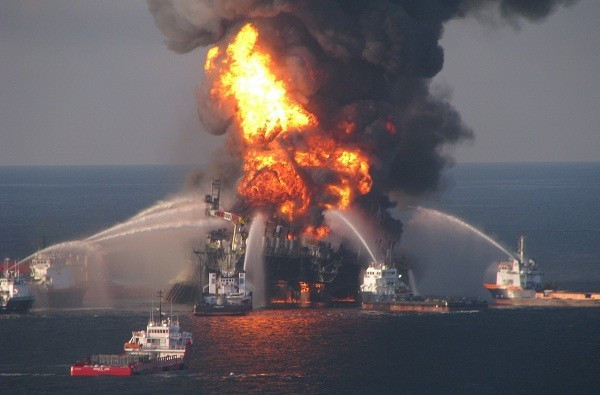Gulf of Mexico Oil Spill: BP Accused of Lying About Spill Size

British oil major BP was accused of lying to the government about the amount of oil leaked into the Gulf of Mexico, following the Macondo well explosion, at the opening of the second phase of the company's trial over the 2010 Deepwater Horizon oil spill.
Plaintiffs' lawyers noted that the company could have capped the well sooner if it had not ignored warnings about a possible blowout.
"BP refused to spend any time or money preparing to stop a deepwater blowout at its source," plaintiffs' lawyer Brian Barr said at the US District Court in New Orleans.
The company also made the situation worse "by lying about the amount of flow from the well," Barr added.
BP was aware of the actual amount of leakage of about 100,000 barrels of oil per day, much higher than the publicly-disclosed 5,000 barrels per day, according to internal company emails presented at the court.
BP Denies Allegations
A lawyer for BP said that the company did not misrepresent the amount of leakage and was strictly following the US norms before and after the oil spill.
"BP had a response plan that was fully consistent with US standards for spill preparedness," said a BP lawyer, Mike Brock.
"BP did not misrepresent the flow rate in a way that caused a delay in the shut in of the well. It made reasonable decisions based on what was known at each step along the way."
The US government claims that 4.9 million barrels of oil were spilled in the offshore disaster, while BP estimates a leakage of 3.26 million barrels during the three-month period it took to cap the blowout. The company collected 810,000 barrels of oil during the clean-up procedure that will be excluded from the original amount of leakage.
Rising Costs
An explosion on BP's Deepwater Horizon rig on 20 April 2010, which killed 11 workers, resulted in one of the worst environmental disasters in history. BP has since forked out $42.4bn (€31.4bn, £26.4bn) in oil spill related charges.
BP's costs are still mounting as it has taken a substantial hit in the running of the victims' settlement programme. This includes payments to court-appointed vendors and appeals panellists. It also has to bear administrative costs to process remaining claims from the Gulf Coast Claims Facility, a fund set up to pay claimants before the current settlement was reached.
Earlier, the company failed in a number of attempts to halt payments to people and companies by accusing the settlement programme of fraud.
In the second phase of the trial, the company may get additional fines up to $18bn under the US Clean Water Act, which provides for a maximum fine of $1,100 for each barrel of oil spilled.
In the first segment of the trial that will last four days, the court will assess BP's efforts to cap the well. The second segment will last for three weeks, during which the amount of oil spilled into the sea will be determined.
© Copyright IBTimes 2025. All rights reserved.






















